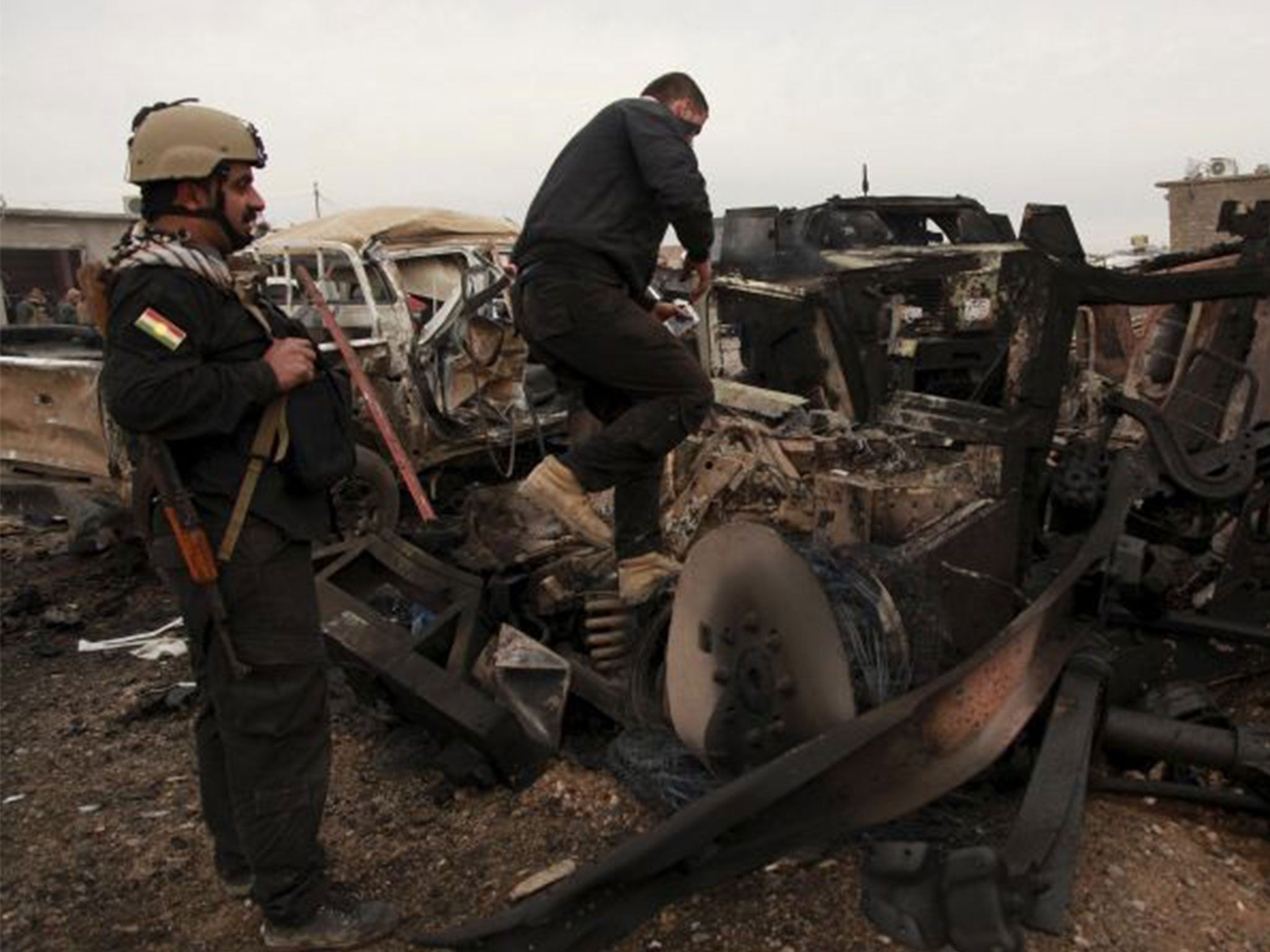Kurdish fighters clear corridor, letting trapped Yazidis leave mountain
The spectacle of the Yazidis trapped on the mountain galvanised President Barack Obama to initiate US military action in August

The men, women and children of the Yazidi community, once trapped on a mountain and surrounded by Islamist fighters seeking their extermination, are free. For now.
The Kurdistan Regional Government (KRG) said some 8,000 Kurdish Peshmerga fighters, in sustained fighting lasting two days and on two fronts, had secured a 43-mile corridor, six miles wide, allowing those trapped on top of the Sinjar mountain range to flee. After months spent atop the barren expanse west of Mosul in northern Iraq, they were yesterday free to leave.
Pursued by hordes of Isis fighters – who view them as apostates – hundreds of Yazidis are thought to have died as they fled to Sinjar from surrounding towns and villages in the summer. Many were rescued, but some remained on the mountain. They were forced to bury young and elderly victims of the harsh conditions in shallow graves, their bodies covered in stones.
The spectacle of the Yazidis trapped on the mountain galvanised President Barack Obama to initiate US military action in August. The Isis assault on Sinjar, which drew condemnation from many world governments including from Downing Street, was the first major setback for Kurdish forces protecting the country’s north. It was followed by more defeats over the summer in which the Kurds increasingly appeared ill-equipped to fight Isis.
The Kurdish operation this week, which advanced from Zumar – captured by the Kurds two months ago – to Sinjar was supported by 45 US and coalition air strikes. It was viewed as an unprecedented success by the Kurdish forces, which in recent weeks have appeared to have made inroads into Isis-held territory in Iraq. “This operation represents the single biggest military offensive against Isis and the most successful,” the KRG said. “In addition to suffering heavy casualties, Isis’ morale has suffered a devastating blow.”
The KRG said the militants had been seen “fleeing in large numbers” towards the Syrian border and their strongholds of Tal Afar and Mosul.
But for the Yazidis, analysts say the struggle is far from finished. They may, as some point out, have been given a corridor of escape by the Peshmerga, but there will be discoveries of mass graves and atrocities when they return to their homes in the towns and villages of Sinjar province. Indeed, many Yazidi villages still have “Property of the Islamic State” written on the walls of homes.
In Mosul, about 70 miles east, Isis has in recent weeks been tightening its grip on the city: there are restrictions on those leaving and arriving. It is feared that the Isis defeat in Sinjar could lead to fiercer fighting in Mosul. “The Peshmerga have managed to reach the mountain. A vast area has been liberated,” said Masrour Barzani, head of the Iraqi Kurdish region’s national security council, adding that 100 Isis fighters were killed in clashes on Wednesday and Thursday. “Now a corridor is open and hopefully the rest of the [Sinjar] region will be freed.”
The impact of the air strikes was evident, Reuters reported. In one village, Little Koban, the bodies of five militants lay in a ditch. “It’s the best feeling to kill the enemy,” said a Peshmerga as he took a photo of himself with a corpse.
The air strikes also killed two senior Isis leaders. They were named as Haji Mutazz, the deputy to Abu Bakr al-Baghdadi; and Abd al (or Abdul) Basit, the Isis military head.
Subscribe to Independent Premium to bookmark this article
Want to bookmark your favourite articles and stories to read or reference later? Start your Independent Premium subscription today.

Join our commenting forum
Join thought-provoking conversations, follow other Independent readers and see their replies